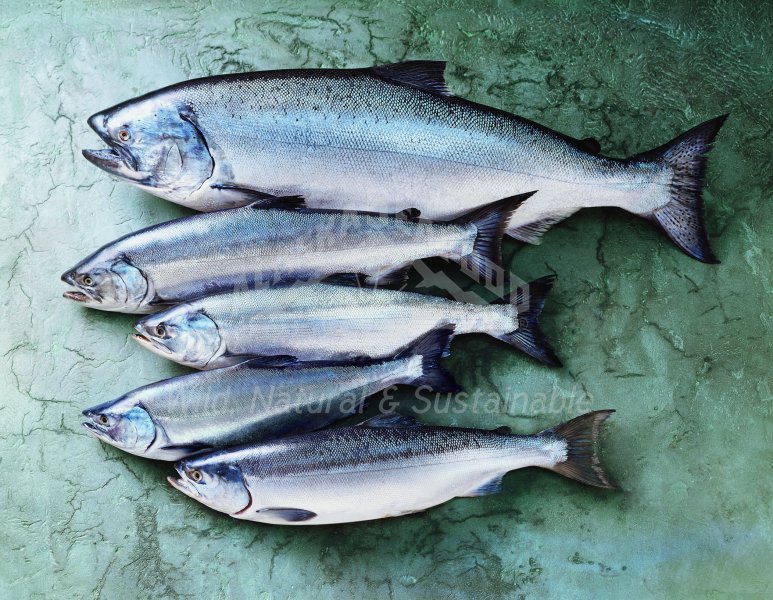
All of Alaska’s salmon species are represented in this photo courtesy of the Alaska Seafood Marketing Institute
Alaska is a huge state with a lot of varying opinions about a lot of different things. But one thing that most people have in common is salmon. It touches almost everyone’s life.
“Salmon is a defining factor in the culture of Alaska,” said Kameron Perez-Verdia, President of the Alaska Humanities Forum. He says while salmon is important to many Alaskans it also comes with very different viewpoints.
“It’s a flashpoint of conflict over a lot of important issues that we have in Alaska,” Perez-Verdia said. “Racial justice and the urban rural divide and balance sustainability against the needs of resource development.”
There are many Alaskans interested in harvesting salmon but there are only so many to go around, particularly King salmon. And science has only come up with so many answers as to why their populations have been declining.
Perez-Verdia says that the Alaska Humanities Forum sees it as “salmon have a people problem” and in order to find solutions they need to call on the state’s differing voices to come together. A few years back they created the Salmon Fellowship to grow a network of people from around the state to talk about it.
There are two cohorts of 16 fellows each selected from dozens of applicants from all over the state. Petersburg’s gathering is the very first time the fellows in the second cohort are meeting each other. Perez-Verdia says it’s is a very diverse group of people.
“Diverse in terms of where they’re from, diverse areas that they might work in, for example, sport, commercial, or subsistence, or policy,” Perez-Verdia said. “It’s really an effort to bring really very different people together to build a cohort and to think creatively and innovatively about the salmon challenges that we have in Alaska and ultimately develop projects that can impact that system in a positive way.”
The fellows spend a lot of time together. Each term lasts 18 months. During that time, the group meets in-person four times for five-day gatherings.
Petersburg resident Kris Norosz is part of the first group of fellows. She’s been in the seafood industry for about 40 years. Her fellowship wraps up in October but she believes the network the process created will continue in the future.
“For me it just comes down to trying to solve problems, we can’t do it in a vacuum,” Norosz said. “You, know, here’s people where you have this common goal of sustainability of salmon.”
She says it’s easy for people to get divisive when it comes to salmon. But listening and trying to understand different perspectives will be key to creating solutions.
“It’s hard to argue with someone’s experience because they own that,” Norosz said. “And so when you get to know someone and you hear about their experiences it lends itself to a softer conversation. Instead of people trying to think in a meeting right away, ‘Ok, what’s my comeback going to be? How am I going to defend my sector?’”
People like to say that Petersburg is “the town that fish built”. Commercial fishermen harvest millions of pounds of pink salmon every year as well as other salmon species. Perez-Verdia says when traveling to places like Petersburg the fellows get an immersion experience.
“To connect with community, to talk with industry, to really make sure that they’re learning and their development is connected to real people in real life,” Perez-Verdia said. “We’re not sitting in some classroom somewhere but we’re outside talking to people. We’re in businesses, we’re in people’s homes, and we’re really learning about what’s going on in Alaska.”
And with time, he says, hopefully the fellows can help Alaskans come up with new and innovative solutions to keeping salmon sustainable.
The Salmon Fellows are in Petersburg April 25-30. When not walking around the town, they have mostly been meeting at the Holy Cross House at the Lutheran Church.










